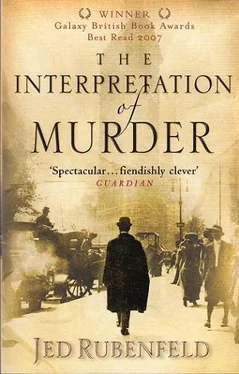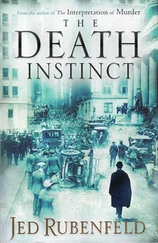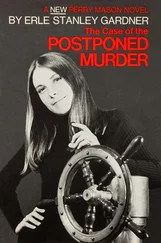Jed Rubenfeld - The Interpretation of Murder
Здесь есть возможность читать онлайн «Jed Rubenfeld - The Interpretation of Murder» весь текст электронной книги совершенно бесплатно (целиком полную версию без сокращений). В некоторых случаях можно слушать аудио, скачать через торрент в формате fb2 и присутствует краткое содержание. Жанр: Исторические приключения, на английском языке. Описание произведения, (предисловие) а так же отзывы посетителей доступны на портале библиотеки ЛибКат.
- Название:The Interpretation of Murder
- Автор:
- Жанр:
- Год:неизвестен
- ISBN:нет данных
- Рейтинг книги:5 / 5. Голосов: 1
-
Избранное:Добавить в избранное
- Отзывы:
-
Ваша оценка:
- 100
- 1
- 2
- 3
- 4
- 5
The Interpretation of Murder: краткое содержание, описание и аннотация
Предлагаем к чтению аннотацию, описание, краткое содержание или предисловие (зависит от того, что написал сам автор книги «The Interpretation of Murder»). Если вы не нашли необходимую информацию о книге — напишите в комментариях, мы постараемся отыскать её.
The Interpretation of Murder — читать онлайн бесплатно полную книгу (весь текст) целиком
Ниже представлен текст книги, разбитый по страницам. Система сохранения места последней прочитанной страницы, позволяет с удобством читать онлайн бесплатно книгу «The Interpretation of Murder», без необходимости каждый раз заново искать на чём Вы остановились. Поставьте закладку, и сможете в любой момент перейти на страницу, на которой закончили чтение.
Интервал:
Закладка:
The coroner grumbled but in the end gave way. 'I have two conditions. First, whoever is in charge at the building must be told immediately that nothing is to be touched.
Nothing. I cannot be expected to solve a murder if the evidence is trampled and tampered with before I arrive.'
'Eminently sensible,' replied the mayor. 'What else?'
'I am to have full authority over the investigation, including the choice of detective.'
'Done,' said the mayor. 'You can have the most seasoned man on the force.'
'Exactly what I don't want,' replied the coroner. 'It would be gratifying for once to have a detective who won't sell out the case after I have solved it. There's a new fellow — Littlemore. He's the one I want.'
'Littlemore? Excellent,' said the mayor, turning his attention to the stack of papers on his large desk. 'Bingham used to say he's one of the brightest youngsters we have.'
'Brightest? He's a perfect idiot.'
The mayor was startled: 'If you think so, Hugel, why do you want him?'
'Because he can't be bought — at least not yet.'
When Coroner Hugel arrived at the Balmoral, he was told to wait for Mr Banwell. Hugel hated being made to wait. He was fifty-nine years old, the last thirty of which had been spent in municipal service, much of it in the unhealthy confines of city morgues, which had lent his face a grayish cast. He wore thick glasses and an oversized mustache between his hollow cheeks. He was altogether bald except for a wiry tuft sprouting from behind each ear. Hugel was an excitable man. Even in repose, a swelling in his temples gave the impression of incipient apoplexia.
The position of coroner in New York City was in 1909 a peculiar one, an irregularity in the chain of command. Part medical examiner, part forensic investigator, part prosecutor, the coroner reported directly to the mayor. He did not answer to anyone on the police force, not even the commissioner; but neither did anyone on the force answer to him, not even the lowliest beat patrolman. Hugel had little but scorn for the police department, which he viewed, with some justification, as largely inept and thoroughly crooked. He objected to the mayor's handling of the retirement of Chief Inspector Byrnes, who had obviously grown rich on bribes. He objected to the new commissioner, who did not appear to have the slightest appreciation of the art or importance of a properly held inquest. In fact, he objected to every departmental decision he ever heard of, unless it had been made by himself. But he knew his job. Although not technically a doctor, he had attended a full three years of medical school and could perform a more expert autopsy than the physicians who served as his assistants.
After fifteen infuriating minutes, Mr Banwell at last appeared. He wasn't, in fact, much taller than Hugel but seemed to tower over him. 'And you are?' he asked.
'The coroner of the City of New York,' said Hugel, trying to express condescension. 'I alone touch the deceased. Any disturbance of evidence will be prosecuted as obstruction. Am I understood?'
George Banwell was — and plainly knew it — taller, handsomer, better dressed, and much, much richer than the coroner. 'Rubbish,' he said. 'Follow me. And keep your voice down while you're in my building.'
Banwell led the way to the top floor of the Alabaster Wing. Coroner Hugel, grinding his teeth, followed. Not a word was spoken in the elevator. Hugel, staring resolutely at the floor, observed Mr Banwell's perfectly creased pinstriped trousers and gleaming oxfords, which doubtless cost more than the coroners suit, vest, tie, hat, and shoes put together. A manservant, standing guard outside Miss Riverford's apartment, opened the door for them. Silently, Banwell led Hugel, the head manager, and the servant down a long corridor to the girl's bedroom.
The nearly naked body lay on the floor, livid, eyes closed, luxurious dark hair strewn across the intricate design of an Oriental carpet. She was still exquisitely beautiful — her arms and legs still graceful — but her neck had an ugly redness around it, and her figure was scored with the marks of a lash. Her wrists remained bound, thrown back over her head. The coroner walked briskly to the body and placed a thumb to those wrists, where a pulse would have been.
'How was she — how did she die?' Banwell asked in his gravelly voice, arms folded.
'You can't tell?' replied the coroner.
'Would I have asked if I could tell?'
Hugel looked under the bed. He stood and gazed at the body from several angles. 'I would say she was strangled to death. Very slowly.'
'Was she — ?' Banwell did not complete the question.
'Possibly,' said the coroner. 'I won't be certain until I've examined her.'
With a piece of red chalk, Hugel roughed a circle seven or eight feet in diameter around the girl's body and declared that no one was to intrude within it. He surveyed the room. All was in perfect order; even the expensive bed linens were scrupulously tucked and squared. The coroner opened the girl's closets, her bureau, her jewelry boxes. Nothing appeared to be amiss. Sequined dresses hung straight in the wardrobe. Lace underthings were folded neatly in drawers. A diamond tiara, with matching earrings and necklace, lay in harmonious composition inside a midnight-blue velvet case on top of the bureau.
Hugel asked who had been in the room. Only the maid who had found the body, the manager answered. Since then, the apartment had been locked, and no one had entered. The coroner sent for the maid, who at first refused to come past the bedroom door. She was a pretty Italian girl of nineteen, in a long skirt and a full-length white apron. 'Young lady,' said Hugel, 'did you disturb anything in this room?'
The maid shook her head.
Despite the body on the floor and her employer looking on, the maid held herself straight and met her interrogator's eyes. 'No, sir,' she said.
'Did you bring anything in, take anything out?'
'I'm no thief,' she said.
'Did you move any article of furniture or clothing?'
'No.'
'Very good,' said Coroner Hugel.
The maid looked to Mr Banwell, who did not dismiss her. Instead, he addressed the coroner: 'Get it over with.'
Hugel cocked an eye at the owner of the Balmoral. He took out a pen and paper. 'Name?'
'Whose name?' said Banwell, with a growl that made the manager cower. 'My name?'
'Name of deceased.'
'Elizabeth Riverford,' Banwell replied.
'Age?' asked Coroner Hugel.
'How do I know?'
'I understood you were acquainted with the family.'
'I know her father,' said Banwell. 'Chicago man. Banker.'
'I see. You wouldn't have his address, by any chance?' asked the coroner.
'Of course I have his address.'
The two men stared at each other.
'Would you be so good,' asked Hugel, 'as to provide me the address?'
'I'll provide it to McClellan,' said Banwell.
Hugel began grinding his molars again. 'I am in charge of this investigation, not the mayor.'
'We'll see how long you're in charge of this investigation,' answered Banwell, who ordered the coroner for a second time to bring his business to a close. The Riverford family, Banwell explained, wanted the girl's body sent home, a duty he would be seeing to immediately.
The coroner said he could by no means allow it: in cases of homicide, the decedent's body must by law be taken into custody for an autopsy.
'Not this body,' answered Banwell. He instructed the coroner to ring the mayor if he required clarification of his orders.
Hugel responded that he would take no orders except from a judge. If anyone tried to stop him from taking Miss Riverford's body downtown for an autopsy, he would see that they were prosecuted to the fullest extent of the law. When this admonition failed appreciably to move Mr Banwell, the coroner added that he knew a reporter for the Herald who found murder and obstruction of justice highly newsworthy. Reluctandy, Banwell yielded.
Читать дальшеИнтервал:
Закладка:
Похожие книги на «The Interpretation of Murder»
Представляем Вашему вниманию похожие книги на «The Interpretation of Murder» списком для выбора. Мы отобрали схожую по названию и смыслу литературу в надежде предоставить читателям больше вариантов отыскать новые, интересные, ещё непрочитанные произведения.
Обсуждение, отзывы о книге «The Interpretation of Murder» и просто собственные мнения читателей. Оставьте ваши комментарии, напишите, что Вы думаете о произведении, его смысле или главных героях. Укажите что конкретно понравилось, а что нет, и почему Вы так считаете.












